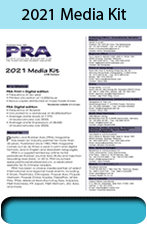Green tech: Oxy Low Carbon Ventures, Cemvita Factory to develop pilot plant for CO2-to-bio-ethylene technology; Sabic to help SIRC set up chemical recycling in Saudi Arabia

US’s Oxy Low Carbon Ventures (OLCV), a subsidiary of Occidental, and bio-engineering start-up Cemvita Factory plan to construct and operate a 1-tonne/month bio-ethylene pilot plant, applying a jointly developed technology using human-made carbon dioxide (CO2) instead of hydrocarbon-sourced feedstocks.
The pilot project will scale up the process that was successful in laboratory tests, which showed the OLCV-Cemvita technology is competitive with hydrocarbon-sourced ethylene processes. Ethylene is widely used in the chemical industry, primarily as a precursor to polymers for use in items like durable, long-life products. Start-up of the pilot plant is expected in 2022.
In 2019, OLCV made an investment in Cemvita Factory to jointly explore how the advances in synthetic biology can be utilised to provide sustainable pathways for the bio-manufacturing of OxyChem's products. This strategic partnership is yielding new innovations that hold promise to decarbonise and transform the chemical industry to create a sustainable future.
"This technology could provide an opportunity to offer a new, non-hydrocarbon-sourced ethylene product to the market, reducing carbon emissions, and in the future benefit our affiliate, OxyChem, which is a large producer and consumer of ethylene in its chlorovinyls business," said Dr. Robert Zeller, Vice President of Technology for OLCV.
"Today bio-ethylene is made from bio-ethanol, which is made from sugarcane, which in turn was created by photosynthesizing CO2. Our bio-synthetic process simply requires CO2, water and light to produce bio-ethylene, and that's why it saves a lot of cost and carbon emissions," stated Moji Karimi, Co-founder/CEO of Cemvita Factory. "This project is a great example of how Cemvita is applying industrial-strength synthetic biology to help our clients lower their carbon footprint while creating new revenue streams."

Meanwhile in other news, chemical firm Sabic recently signed a Memorandum of Understanding (MoU) with Saudi Investment Recycling Company (SIRC), a wholly owned subsidiary of Saudi Public Investment Fund (PIF), to help SIRC set up its first chemical recycling project to enable the use of recycled plastic feedstock. It also proposed a feasibility study on building a chemical recycling plant in the country to convert mixed plastic waste (MPW) into pyrolysis oil.
“This strategic collaboration will help us in our efforts to contribute to fulfilling the Kingdom’s waste management objectives aligned with Saudi Vision 2030,” said Yousef Al-Benyan, Sabic Vice Chairman/CEO.
The Public Investment Fund (PIF) owned SIRC aims to use mixed plastic waste collected from Materials Recovery Facility (MRF) to be used as feedstock to be converted into Pyrolysis oil.
“The initiative will play a vital role in contributing to the Circular Economy of Saudi Arabia, reducing the greenhouse emissions, protecting the environment and creating a sustainable future in Saudi Arabia. We see the right synergy and expertise between SIRC and SABIC to make this massive project a resounding success and a role model initiative in the Middle East,” said Ziyad Al Shiha, Chief Executive Officer of Saudi Investment Recycling Corporation.
According to the MoU, SIRC will source, collect, sort and supply the feedstock for the chemical recycling facility from the municipal solid waste.
Both SIRC and Sabic will assess project feasibility study and the proposed collaboration, as part of the MoU, beside jobs creation.
The MoU is aligned with Sabic’s Trucircle initiative as part of its vision of a circular economy.
The Trucircle umbrella covers certified circular products, made through feedstock recycling of difficult to recycle plastic waste; certified renewable products from second-generation bio-based feedstock; mechanically recycled products to improve recyclability and end-use properties; and design for recyclability for products that have better recyclability characteristics.
The portfolio has applications in key end markets such as packaging, electrical & electronics, transportation, construction and healthcare/medical devices.
(PRA)
Subscribe to Get the Latest Updates from PRA Please click here
©2021 Plastics and Rubber Asia. All rights reserved.

©2020 Plastics and Rubber Asia. All rights reserved.
Home Terms & Conditions Privacy Policy Webmail Site Map About Us
















